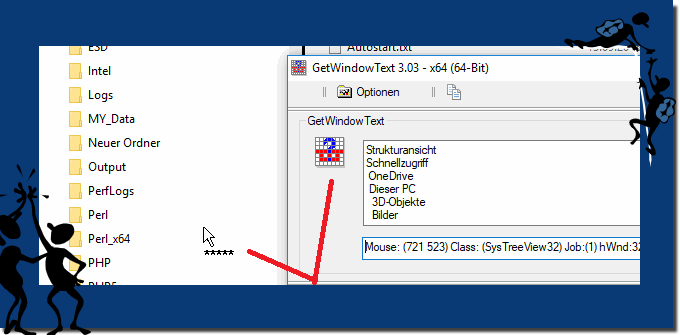
#Getwindowtext edit control code
Now, since your C++ code is already Windows-specific, that should not be a problem.Īnd, anyway, IMO the standard should be fixed to allow something like overwriting the terminating NUL with another NUL a valid well-defined operation. Then, when you hit the WMCOMMAND case later in the program, you try to use the invalid handles. However, it seems to work just fine in Visual Studio (tested on both 20). Well, what stands out right away is that you have defined your window handle variables as locals, so after the windows are created, the handles go out of scope and are lost. However, note that overwriting the NUL terminator in STL strings with another NUL terminator seems to be "undefined behavior", at least according to this discussion on Stack"" This approach is more efficient than having a separate std::vector for buffer allocation, with a separate dynamic memory allocation, and then a deep-copy into the std::wstring. This works, but is not practical, especially if the text lenght is huge and the appending is made very frequently. However, you have to pass the whole destination buffer length (*including* the terminating NUL) to GetWindowText() as third parameter. A: One method is to call 'GetWindowText ()' to get the initial text, append the new text to it, then put it back with 'SetWindowText ()'. Note that the length value returned by GetWindowTextLength() excludes the terminating NUL.

Str.resize(len) // make enough room in string but I read that GetWindowText does not do that. Something like this: int len = GetWindowTextLength(hwnd) I need to get the text of a Edit control in another application.
#Getwindowtext edit control Pc
Your typical PC had an 8086 processor running at a whopping 4.

Then how are you supposed to get any window text ?Īn option would be to make enough room inside the string for storing text in it. Joel Spolsky rightly points out that the rules for GetWindowText exhibit abstraction leakage.Why are the rules for GetWindowText so weird.


 0 kommentar(er)
0 kommentar(er)
